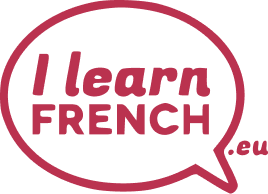What is a plateau?
A plateau is when you reach “a state of little or no change after a time of activity or progress” (it’s actually a French word too, in case you didn’t know 😉).
Essentially, reaching a plateau means being stagnant. It’s a problem that all language learners will eventually face and is especially common at the intermediate level.
So if you’ve been learning French for some time, enjoyed some noticeable progress but now feel like you’ve been hovering over the same level with no notable change— this article is for YOU.
First off, why is this happening?
Normally students are in a plateau when they’ve already reached their initial and most pressing objectives (hurray!) As a result, they are no longer being pushed to learn new things. They are usually comfortable enough with their level to get by or at least fulfil the tasks they set out to do in their target language.
And while that’s undeniably awesome, because there aren’t any real lingering incentives for them to advance in their French studies — students can get stuck pretty quick.
What should you do?
If you can relate to this, there are a few strategic things you can do to climb out of your plateau.
But before we get to those, the first thing you should NOT do is give up. You’ve come so far already and while it might feel frustrating that your French is not advancing like it was at lower levels, there are critical ways to improve your fluency. It’s going to be worth it.
Here are 4 foolproof strategies to climb out of the dreaded learning plateau.
1. Identify a clear new goal:
If you want to get out of the learning plateau, you’re going to need an incentive. And the best way to do that is to find a new goal that will not only motivate you but also purposefully steer you in the right direction. While I’m not a huge fan of standardised tests in general (remember, I’m a rebel French teacher and not a star student), one common and motivating goal is passing the Diplôme d’Etudes en Langue Française (DELF) exam.
The DELF is an official qualification awarded by the French Ministry of Education. It certifies the competency of students from A1 to B2 (C1 and C2 levels are assessed with the Diplôme Approfoni de Langue Française — the DALF).
While that might not be everyone’s cup of tea, another goal could be successfully navigating an unfamiliar situation or context in French. For example, preparing for an upcoming dental or medical appointment or purchasing a health insurance policy, that will require learning brand new vocabulary.
Both these goals have some sort of deadline, a motivating factor, and practicality that will force you to learn.
2. Engage with Authentic Material:
Stop learning and studying from textbooks, boring course material, or YouTube videos geared towards learners.
Of course, these tools are super helpful when you want to brush-up on a specific grammar concept, but they shouldn’t be your main go-to. Instead, listen to material geared towards real francophones. Listen to podcasts (check out my blog post on this very topic, I give over 70+ recommendations), watch YouTube channels or documentaries, and read the newspaper, magazines and books all en français.
Sure, it might be challenging and take you a couple of times of repetition, or even twice as long to read a page as it would in your native language — but that’s expected and normal. This is part of your learning process.
3. Learn New Vocabulary:
Just like how going to the dentist or buying an insurance policy would force you to learn new vocabulary — picking a topic or situation that may be uncommon in your everyday life and immersing yourself in it, is a good way to advance your French.
The key to breaking out of the learning plateau is not just engaging in familiar material. If you’re already doing yoga classes in French, awesome, but how much more vocabulary can you learn on the same topic if you’ve been doing it for months and understand everything already?
Expanding yourself is to challenge yourself.
4. Meet with Native Speakers:
This is one of the best ways to enhance your French learning. Because oftentimes fast-talking native speakers will unashamedly use lots of slang, making this even more challenging. (This is especially true when there’s wine involved).
The point here is to go beyond the normal conversational routine — you want to really engage and connect in an authentic situation. Unfortunately, at an advanced level, you won’t be able to level-up if you’re only engaging with other learners.
5. Try a New Method:
If you’ve tried different strategies and they aren’t working for you, it’s probably time to try something new.
Because let’s face it. Oftentimes our busy lives get in the way of our self-study plans. We become de-motivated without any external encouragement, and it can feel draining to hold ourselves accountable. So we stay stuck in the learning plateau, keeping the same French-speaking routine without pushing ourselves further, and holding ourselves back from our potential.
So if you’re craving the external guidance, motivation, and loving kick-in-the-pants to really advance your French and emerge from the plateau, you need a course geared towards your unique struggles. A course for people exactly in your boat.
That’s what I’ve created with Café Français. It’s the best solution specifically for French speakers with a B2 or C1 level who want to advance their fluency. It’s completely conversation-oriented (no grammar here) and focuses on engaging with authentic francophone material.
You’ll discover and explore topics to build your fluency and grow your confidence even more.
Because If you want to get out of the learning plateau, you’re going to need a plan. And what better plan than studying French with me and my team?
How long have you been studying French? Join my newsletter below ⬇⬇⬇ and share your experience with me.
